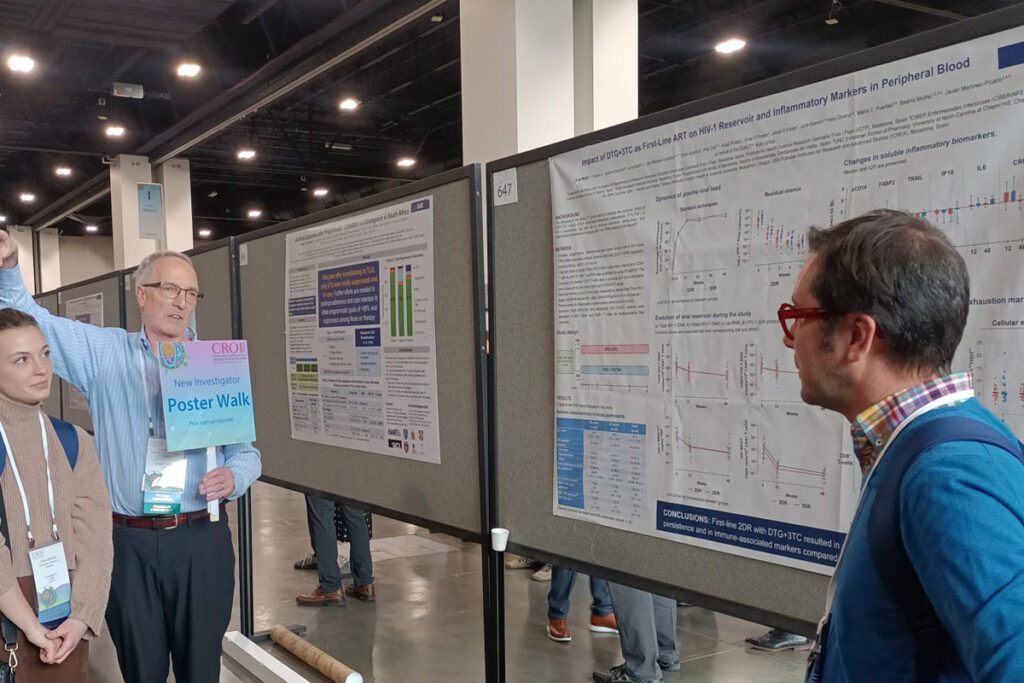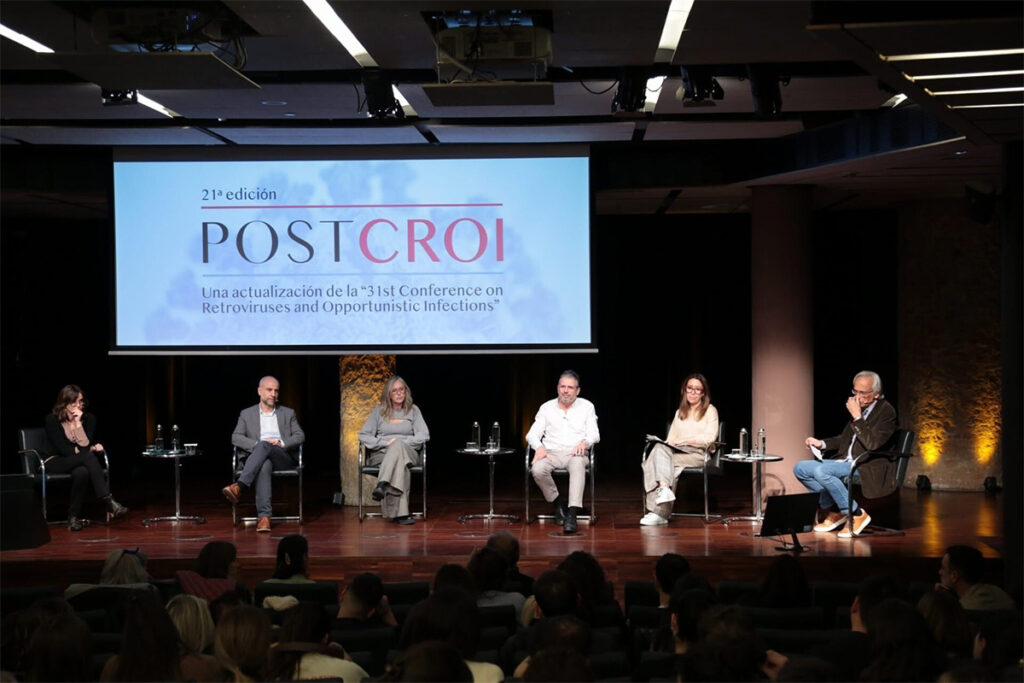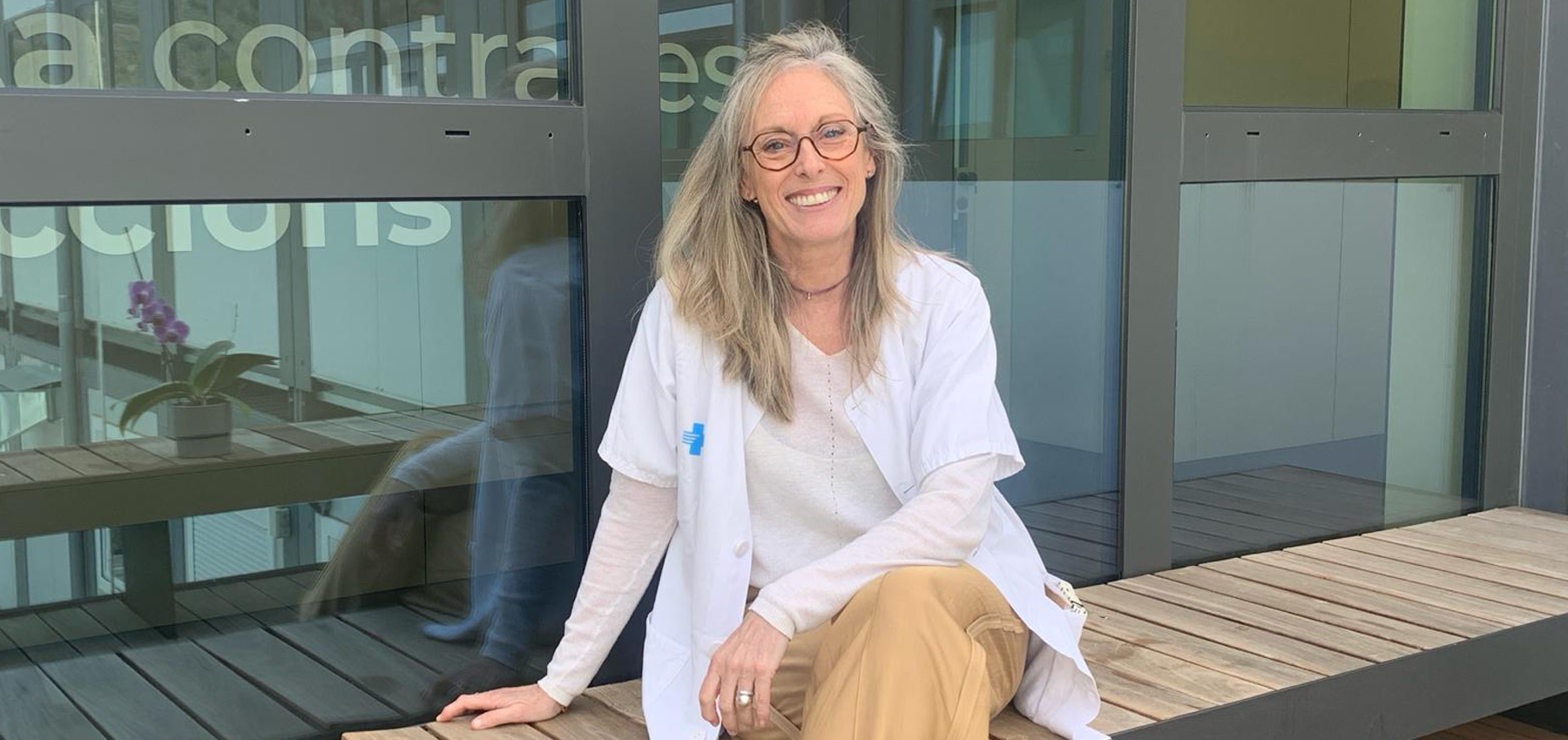The HIV research line receives Gilead’s Prisma Grant for the Healthy Connections project
29/01/2026
The PostCROI is a day that accumulates more than 20 editions, where independent and specialized speakers make a very high quality summary of the most important contents presented at the CROI congress on HIV and other infections.
The PostCROI, which this year reaches its 21st edition, concentrates in an intense afternoon of work the main contents shared during the CROI. This day has become a summary of very high quality, highly valued by its attendees. CROI is a conference that was established in 1993 to provide a forum where basic scientists and clinical investigators could present and discuss their research on the epidemiology and biology of human retroviruses and associated diseases. During these years the CROI has facilitated the presentation of important discoveries in this field, thus accelerating progress in HIV and AIDS research.
Per comentar les novetats que s’han presentat al CROI 2024 parlem amb la Dra. Eugènia Negredo, cap de secció de VIH de la Fundació Lluita contra les Infeccions i metgessa de l’Hospital Germans Trias.
To comment on the novelties that have been presented at CROI 2024, we speak with Dr. Eugènia Negredo, head of the HIV section of the Fight Infections Foundation and doctor at Germans Trias Hospital.
What is CROI?
CROI is one of the most important international conferences on HIV and its associated diseases, but more recently, this event has also incorporated an important part on COVID-19. This year it was held in the city of Denver (USA) and part of the HIV team of the Fight Infections Foundation attended to learn about the scientific advances that have taken place on a global scale regarding the infection during the year. At the same time, Dr. José Moltó (pictured), Dra. Beatriz Mothe and Dr. Josep M. Llibre have presented their work during the congress.

What does postCROI contribute?
Since not everyone can access CROI, we have been organizing postCROI in Barcelona for more than 20 years. This event, which has recently been sponsored by Gilead Sciences and organized by ScienHub Education, was attended by 237 attendees. This meeting concentrates in one afternoon the most relevant issues presented to the CROI. In fact, one of the virtues of postCROI is that it takes place the week after CROI, so the content remains very fresh for everyone. This meeting traditionally always concludes with a session we call the “Top 10” where the 10 most important presentations from the entire CROI congress are highlighted.

What are the most important novelties that have been presented this year?
With regard to the part that I lead, which is the aging of the population with HIV, special reference was made to the REPRIEVE study. This is the first large-scale clinical trial to test a strategy to prevent heart disease among people living with HIV. The results of this study will surely prompt us to make changes in our practice, because they have shown that people with HIV who take Pitavastatin have a lower risk of cardiovascular disease. Therefore, from now on clinical guidelines will probably include this medication as a recommendation for some of these people. Another topic that also had a special prominence during the congress was that of long-acting, long-acting and ultra-long-acting medicines. At the same time, I would like to highlight another topic that was also intensively debated during the meeting and that is the prophylaxis of STIs with the antibiotic doxycycline. The aim is to prevent some Sexually Transmitted Infections (STIs), but there is also the risk of resistance to this antibiotic appearing. These are just three of the prominent topics that were debated during these conferences, but it is clear that congresses of this magnitude move a large volume of research data internationally, which is why it is always necessary to be up to date because science, although sometimes not it may seem, it moves fast.

Share